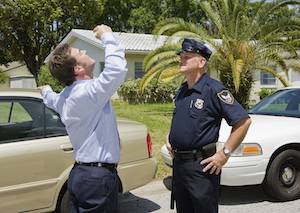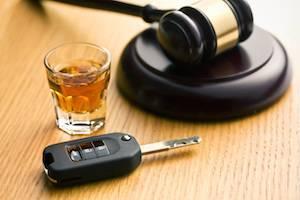Recent Blog Posts
Are there Quotas for Illinois DUI checkpoint arrests?
 There is a law in Illinois that supposedly outlaws quotas for traffic tickets, but that may not be the whole story. Many Illinois police departments apply for federal funds to pay for extra DUI patrols and roadblocks. To get the money, the police must make a minimum amount of DUI arrests so the pressure is on! In Massachusetts, the police officers would receive over $100,00 per year in overtime alone by setting up speed traps and cheating.
There is a law in Illinois that supposedly outlaws quotas for traffic tickets, but that may not be the whole story. Many Illinois police departments apply for federal funds to pay for extra DUI patrols and roadblocks. To get the money, the police must make a minimum amount of DUI arrests so the pressure is on! In Massachusetts, the police officers would receive over $100,00 per year in overtime alone by setting up speed traps and cheating.
Read the below from http://www.thenewspaper.com/news/66/6676.asp#source
If you or a loved one were stopped at a DUI checkpoint then it is possible that you were also a victim here in Illinois. Call Ramsell & Kunowski, L.L.C. at 630-665-8780.
WHAT IS THE PENALTY FOR A SECOND ILLINOIS DRUG DUI?
 As you might well imagine, the penalty for the second DUI drugs conviction is harsher than the first! This should become an active and contentious area of the law both in Illinois and nationwide as at least marijuana use is becoming legal on a state by state basis and is being touted as an appropriate substitute for lawfully prescribed opiates for pain relief.
As you might well imagine, the penalty for the second DUI drugs conviction is harsher than the first! This should become an active and contentious area of the law both in Illinois and nationwide as at least marijuana use is becoming legal on a state by state basis and is being touted as an appropriate substitute for lawfully prescribed opiates for pain relief.
Illinois’ new governor, J.B. Pritzker, is not only in favor of marijuana legalization, but he is also considering signing legislation someday that even allows for home growth of marijuana plants, possibly up to a cap of five marijuana plants per household! This is despite the fact federal law still prohibits marijuana use except in extremely proscribed circumstances such as those who suffer from glaucoma. Regardless, the second DUI drugs conviction statutorily mandates the following below….
A second DUI conviction at the class A Misdemeanor level carries a MANDATORY minimum imprisonment of 5 days or 240 hours of community service, revocation of driving privileges for a minimum of five years for a second conviction within 20 years of the first and suspension of vehicle registration. Also, if the second conviction is committed with a blood alcohol content of .16 or greater, in addition to any other penalties or fines, mandatory imprisonment of 2 days and a minimum fine of $1250.
Breath Testing Is Inaccurate - How to Beat an Illinois DUI #5
 Virtually all experts concede that one breath test is unreliable in DUI cases. However, in Illinois, only ONE breath test reading at a police station is required!
Virtually all experts concede that one breath test is unreliable in DUI cases. However, in Illinois, only ONE breath test reading at a police station is required!
The Illinois Supreme Court has remarked that breathalyzers are not foolproof. This concession by Illinois’ highest court has been the law of the state of Illinois for over 30 years. People v. Orth is considered THE authoritative case on summary suspension law and what is needed for the prosecution to lay the foundation for a breath test at a criminal trial. Orth was decided back in 1988.
Originally, breath test rules were made by the Illinois Department of Public Health. After years of litigation and some discoveries from THIS FIRM at trials, rule making authority for breath testing passed to the Illinois State Police. Yes, the very same people trying to obtain arrests, guilty pleas, and convictions get to decide the rules on what needs to be followed for a breath test. Even with this being the case, there are many times where police officers do not follow the Illinois State Police regulations found in the Illinois Administrative Code.
Non-Standardized Field Tests Are Invalid - 40 Ways to Beat Illinois DUI #4
 Imagine a world without standardization. What if Illinois posted its speed limits on roads strictly in metric terms and Indiana in standard ones? What if each of the fifty states had its own unique form of currency?
Imagine a world without standardization. What if Illinois posted its speed limits on roads strictly in metric terms and Indiana in standard ones? What if each of the fifty states had its own unique form of currency?
To prevent unequal application of field sobriety tests across these United States, the federal government, through its administrative agency the United States Department of Transportation, promulgated uniform tests known colloquially as the HGN, WAT, and OLS. The idea is to make sure everyone in the country gets the identical testing and it does not vary from city to city, state to state, or region to region.
Thus, if anyone attempts to offer a field sobriety test that is anything other than the official standardized ones, they are per se invalid no matter what an officer may tell you. These invalid variants can be saying the alphabet backwards, closing your eyes and touching the tip of your nose with an index finger, or any other crazy thing some lawman can make up. The point is, unless the test is from the United States Department of Transportation promulgated battery of tests, they are invalid.
What Are the Penalties for Texting While Driving?
 This month, Illinois state troopers are cracking down on distracted driving. April is distracted driving month, and considering the recent trooper deaths, there is expected to be much more enforcement.
This month, Illinois state troopers are cracking down on distracted driving. April is distracted driving month, and considering the recent trooper deaths, there is expected to be much more enforcement.
First, if you are pulled over for distracted driving, the best thing to do is contact an attorney who regularly fights these tickets. Contact an attorney at Ramsell & Kunowski, L.L.C. right now and have a free consultation.
There are some tickets the police will be focusing on.
The law for “Texting while driving” is codified in Electronic Communication Devices is 625 ILCS 5/12-610.2. The statute states: “A person may not operate a motor vehicle on a roadway while using an electronic communication device.”
There are a few exceptions. For one, this does not apply to voice-activated, hands-free devices. Next, if you are a police officer or a first responder, then the law does not apply to you. Or if you are reporting an emergency, or if your vehicle is stopped on the side of the road, or if you are stopped due to traffic and the car is in neutral or park, you can use an electronic device. Lastly, there are certain exceptions: for example, if you are using a band radio or two way communication devices.
Illinois Distracted Driving Laws Strictly Enforced
 Because of the toll on Illinois roads that distracted driving is taking, legislatures including Illinois’ now make operating a cell phone while driving a moving violation. Likewise, Scott’s law, which mandates slowing down and moving over for a first responder’s vehicle with lights activated, is being vigorously enforced in light of a record number of Illinois State Trooper fatalities in 2019.
Because of the toll on Illinois roads that distracted driving is taking, legislatures including Illinois’ now make operating a cell phone while driving a moving violation. Likewise, Scott’s law, which mandates slowing down and moving over for a first responder’s vehicle with lights activated, is being vigorously enforced in light of a record number of Illinois State Trooper fatalities in 2019.
You may have heard traffic enforcement is down in Chicago, which is true, because now officers have to appear in traffic cases in the circuit court rather than face a layman hearing officer in an administrative hearing. Regardless, these are highly fact intensive situations. Traffic safety experts, engineers, and statisticians generally agree that distracted driving may be as responsible for automotive accidents in an amount equal to or greater than drunken driving! Distracted driving can be as old fashioned as a housewife frequently taking her eyes off the road to turn around and yell at her children in the minivan or as modern as someone juggling their cell phone, onboard navigation system, or possibly both!
Non-Standardized Field Sobriety Tests Are Invalid - How to Beat an Illinois DUI
 Those of us of a certain vintage can remember old depictions of DUI investigations such as from United States Department of Transportation public service shorts featuring the likes of actor Dana Andrews and from TV and the movies where lawmen seemingly decided a driver’s sobriety by made up and widely different on the spot tests.
Those of us of a certain vintage can remember old depictions of DUI investigations such as from United States Department of Transportation public service shorts featuring the likes of actor Dana Andrews and from TV and the movies where lawmen seemingly decided a driver’s sobriety by made up and widely different on the spot tests.
To avoid this scenario of different tests and presumably different results, field sobriety tests for alcohol have been standardized nationwide into the basic three: horizontal gaze nystagmus, nine step walk and turn, and one leg stand. Thus, if an officer deviates from the standard tests and asks you to close your eyes, tilt your head back, and touch the tip of your nose with each of your index fingers, that is a per se invalid test, as it is not among the standard three. Likewise, if a policeman asks you to recite the Gettysburg Address or the alphabet backwards, those too are per se invalid. Even if in haste, you tell the policeman, “Take me drunk ossifer, I’m home!” relying on that alone to judge a man impaired by alcohol would be a deviation from the standard tests and invalid.
What Are the Look-Back Provisions in Illinois Law for DUI Criminal Cases?
 In Illinois, when someone is facing a DUI charge, it is important to know if he or she has previously been arrested for a prior DUI and what the result of that case was. Unfortunately, in Illinois, prior DUIs do not go away, and the prosecutor can look back over the entire period of your life. This is unfortunate for many reasons.
In Illinois, when someone is facing a DUI charge, it is important to know if he or she has previously been arrested for a prior DUI and what the result of that case was. Unfortunately, in Illinois, prior DUIs do not go away, and the prosecutor can look back over the entire period of your life. This is unfortunate for many reasons.
First, it is always important to remember that there are two sides to a DUI – a civil portion and a criminal portion. The civil portion essentially refers to your driving privileges. There is a five-year look-back. So, when there is a prior DUI within in the past five years, you are no longer a first offender. So, if you are arrested for a DUI, and you refused chemical testing, you are now facing a three-year summary suspension, as opposed to one year, but WITHOUT the ability to get a BAIID. And if you did provide a chemical test, and it came back as one of the prohibited substances, then you are now looking at a one-year summary suspension, as opposed to six months, without the ability to get a BAIID installed. This can dramatically change how to approach your case. Call and speak to a skilled DuPage County DUI defense lawyer at Ramsell & Kunowski, L.L.C. to start building a defense.
What Are the DUI Penalties in Illinois for a First Time DUI With Drugs?
 There are a range of penalties for a first time DUI in Illinois involving drugs.
There are a range of penalties for a first time DUI in Illinois involving drugs.
For one, a first time DUI without any aggravating factors is a class A misdemeanor in Illinois. There is a range a punishment for any class A misdemeanor that a judge can impose, the maximum being 364 days in the county jail and a fine of up to $2,500.
However, as a first offender, you are eligible for what is known as court supervision. If you are found guilty or plead guilty, the judge will sentence you to a period of time (usually between 12 and 24 months). During that time, you would have to complete some counseling and attend a victim’s impact panel. The most important thing is NOT getting arrested during those months. At the end of the period, you will have to come back to court, show the judge you completed everything, as well as not picked up any new charges, and the case will be dismissed. Please contact a DUI attorney NOW to see if you qualify for this type of outcome.
Can I Get a DUI in Illinois on a Bicycle?
 The short answer is not if the bicycle is powered exclusively by a human pedaling it. The best answer, however, is call your defense team at Ramsell & Kunowski, L.L.C. LLC for a free no obligation, no cost legal consultation if you get arrested for DUI while on a bicycle or bike type vehicle.
The short answer is not if the bicycle is powered exclusively by a human pedaling it. The best answer, however, is call your defense team at Ramsell & Kunowski, L.L.C. LLC for a free no obligation, no cost legal consultation if you get arrested for DUI while on a bicycle or bike type vehicle.
In general terms, a bicycle does not meet the definition of vehicle in Illinois statutes, and therefore, you cannot get arrested for driving one under the influence.
However, some bicycles are now borderline mopeds or motorcycles. The most obvious examples are bicycles outfitted with loud unmufflered external engines that drive the wheels so pedaling is not necessary. More elaborate examples include expensive multi-speed bikes that sometimes include remarkably small battery powered engines that can silently power a bike without pedaling at impressive speeds.



















